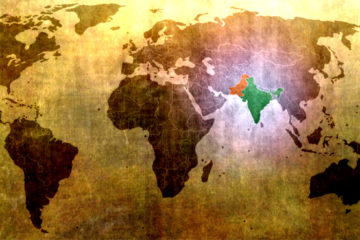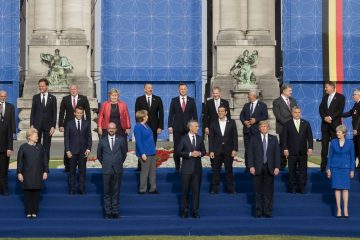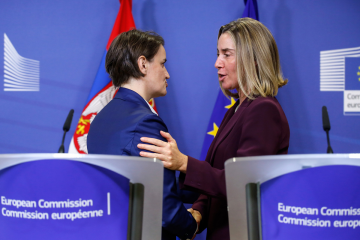The Ineffective International Response to the Rohingya Crisis ─ A Paradox
The longstanding Rohingya crisis in Myanmar has generated massive human rights violations, becoming a humanitarian disaster. It is not only an internal matter for Myanmar, as it has destabilized the regional tranquility of South and Southeast Asia and triggered a global outcry. In this article, I will illustrate why major states, such as China, India, Russia, and the US, have adopted a policy of overlooking the Rohingya crisis. I have intentionally excluded the potential for a prominent leadership role from the already fragile Muslim world because of both their general absence from the central world leadership and their preoccupation with their own domestic crises. The Rohingya are the largest community among eight prominent Muslim groups in Myanmar and have lived in its Rakhine State (formerly Arakan) for generations. They are envisaged by the nation’s government and Buddhist population as illegal Bengali immigrants who came from what is …
Russia’s constitutional reform and Putin’s plans for a legacy of stability
On 15 January, President Vladimir Putin called for a “greater balance between the branches of power” as he announced significant changes to the Russian constitution. On the same day, Prime Minister Dmitry Medvedev and his cabinet resigned and were quickly replaced. The new Prime Minister, Mikhail Mishustin, was a relatively unknown figure in Russia until recently, having previously spearheaded digital modernization efforts as head of the Federal Tax Service. The surprise changes are seen as preparation for the Putin’s departure from the presidency in 2024 given current constitutional restrictions, which prevent him from being president more than two consecutive terms. The proposed constitutional reforms would not facilitate his return to the post in the future, however, but instead propose to weaken the presidency …
Belarus’s 2019 parliamentary election: consequential or not?
On 17 November 2019 Belarus chooses a new parliament. The last parliamentary elections, held in September 2016, brought two non-loyalist candidates into the lower chamber for the first time in more than a decade. Although the role of the parliament is relatively insignificant in the Belarusian political system, the outcome of the poll later this month will send an important signal about Belarus’s domestic trajectory. Moreover, the international response could determine the direction of travel for Belarus’s relations with Russia and Western states as it moves towards presidential elections in August 2020. 2016: A confidence trick? Elections in Belarus usually provide few surprises and critics fairly dismiss parliamentary ballots as inconsequential affairs. In the earlier part of his rule, President …

Most people in separatist-held areas of Donbas prefer reintegration with Ukraine – new survey
With renewed negotiations to end the conflict in Ukraine’s Donbas region on the horizon, the views of those people most affected by the war – the residents of eastern Ukraine – should be taken into account. Russia insists that the people living in areas of the Donbas currently controlled by separatists, who it supports, do not what to reintegrate with Ukraine. But two surveys I carried out in the Donbas in 2016 and 2019, revealed that a majority of those we surveyed in areas not controlled by the government would prefer to be part of the Ukranian state. The war in the Donbas started more than five years ago and has cost in excess of 13,000 lives. At least 1.4m …

Prolonging Conflict: Global Powers’ Involvement in the India-Pakistan Rivalry
The India-Pakistan conflict is one of the most enduring rivalries of the post-World War era. The two nuclear states have fought four wars, and smaller-scale skirmishes are common occurrences. Since the nuclearization of the two countries in 1998, the nuclear stalemate has been one of the most important facet of this ongoing rivalry. Apart from Kashmir, over which three wars have been fought, constant cross-border terrorist attacks in India have severely limited and disrupted initiatives to defuse the situation. Recently, tensions have flared up because of the decision by the Indian government to abrogate Article 370 of the constitution which gave the state of Jammu and Kashmir special status within the Indian republic. This move has infuriated Pakistan, vowing to …

Ukraine: window opens for peace in the Donbas after Volodymyr Zelensky agrees to election plan
As the war in eastern Ukraine drags into its sixth year, all the attempts to end it have so far failed. But in a significant development on October 1, Ukraine’s president, Volodymyr Zelensky, announced his provisional agreement to hold local elections in the currently occupied territories of Donetsk and Luhansk, collectively known as Donbas. The war in the Donbas began when mass protests in support of greater territorial autonomy escalated into a separatist crisis in the spring of 2014. Russia has been supporting the rebels in the Donbas since the inception of the war, which by now has claimed more than 13,000 lives. In an attempt to end the conflict, Ukraine and Russia signed two agreements in Minsk in 2014 …

NATO, the Russian threat and defence spending
As expected, the recent NATO Summit was dominated by President Trump’s blunt criticisms of allies. He accused European member states of taking advantage of the United States, of failing to follow through on the 2014 agreement to raise defence spending to a minimum of 2% of GDP, and cozied up to Russia, perhaps most shockingly given the accusations levelled at his own campaign, of colluding with Russia. The basis for these accusations should be taken seriously, even if the latent threat of the United States withdrawing from NATO and the capricious means of delivery seem designed more to appeal to American domestic political interests than to truly illicit reform of the organisation. Cutting through the hyperbole, we see that there …

Walking a Tightrope: Serbia Between East and West
Despite the fact that other countries of the Western Balkans are already part of NATO and the EU, Serbia is pursuing close ties both with Eastern and Western powers. Ana Brnabic, Serbia’s Prime Minister, has stated that “Serbia should not be asked to choose between the West and Russia.” According to her, Serbia is pursuing a “balanced foreign policy.” Such a policy is not necessarily new, as during the Cold War, the former Yugoslavia cooperated with both the East and the West. But in today’s contentious geostrategic climate, such a “neutral” policy means precariously walking on a tightrope bedeviled by pitfalls and competing interests. The EU’s Increasingly Ambiguous Appeal For centuries, Serbia has been Russia’s main ally in the Balkans. …









